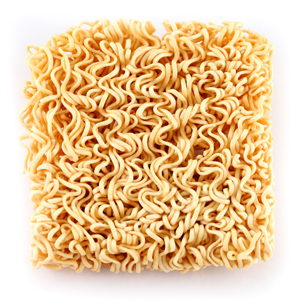Rise of ramen noodles as jailhouse currency shows 'punitive frugality' of prisons, study author says

Prisoners are so unhappy with the quality and quantity of prison food that they have begun relying on ramen noodles as a form of money in the underground economy, according to a study of male inmates at a state-run prison.
The findings highlight “punitive frugality” of prisons, says study author Michael Gibson-Light, a doctoral candidate in the University of Arizona School of Sociology. The Washington Post covered his findings, released this week at a meeting of the American Sociological Association. A press release is here.
Gibson-Light tells the Post that the unidentified prison changed one of its three daily hot meals in the early 2000s to a cold sandwich and a small bag of chips; eliminated weekend lunches; and reduced portion sizes at every meal. Inmates told him the food was “inedible or too little to sustain them for a day.”
Gibson-Light says his findings focused on one prison, but other investigations also point to the ramen noodle trend. His study is an offshoot of year-long study of inmate laborers at the prison.
The Post also spoke with Gustavo “Goose” Alvarez, co-author of Prison Ramen: Recipes and Stories from Behind Bars. Ramen is “gold. It’s literally gold,” Alvarez said. “People will actually—and I hate to say this but—they’ll kill for it, believe it or not.”



